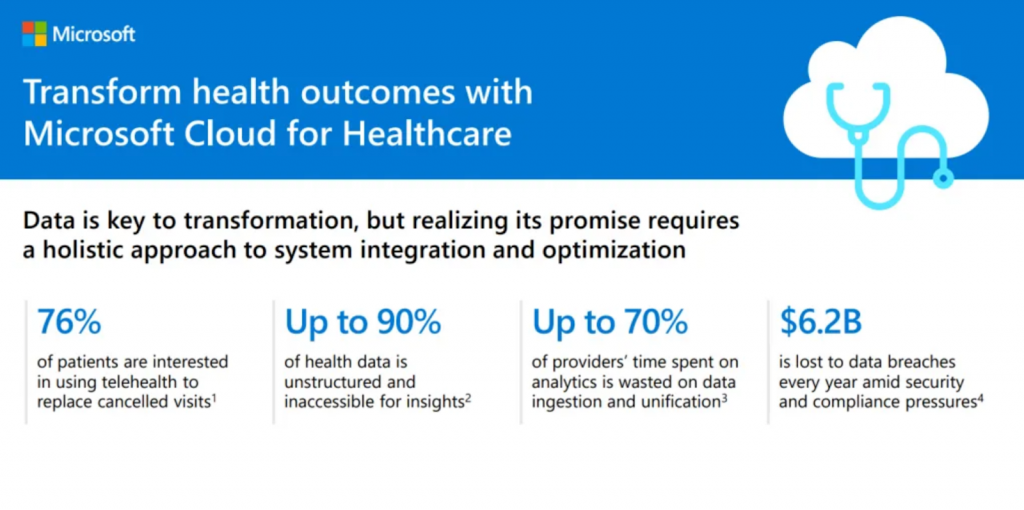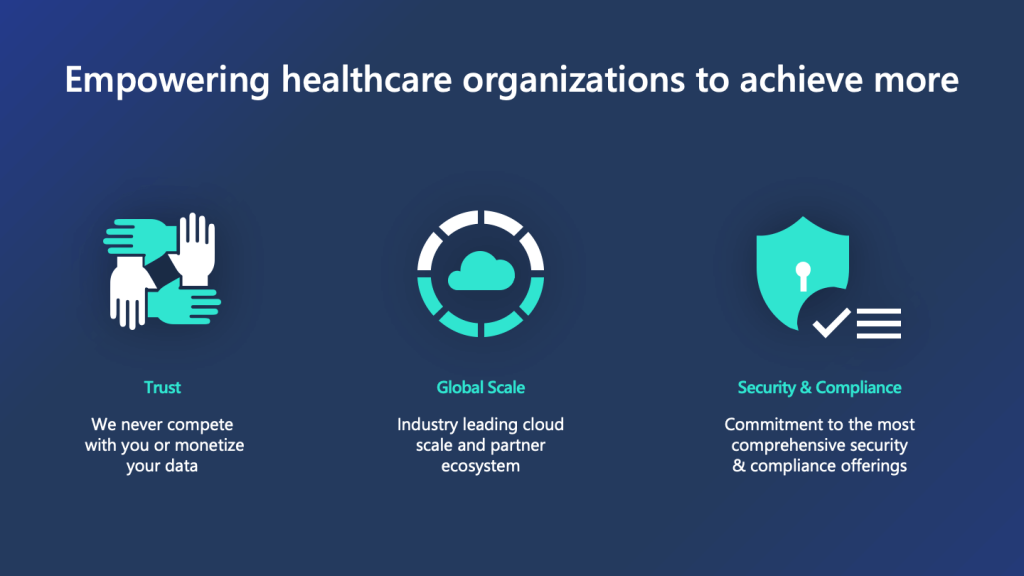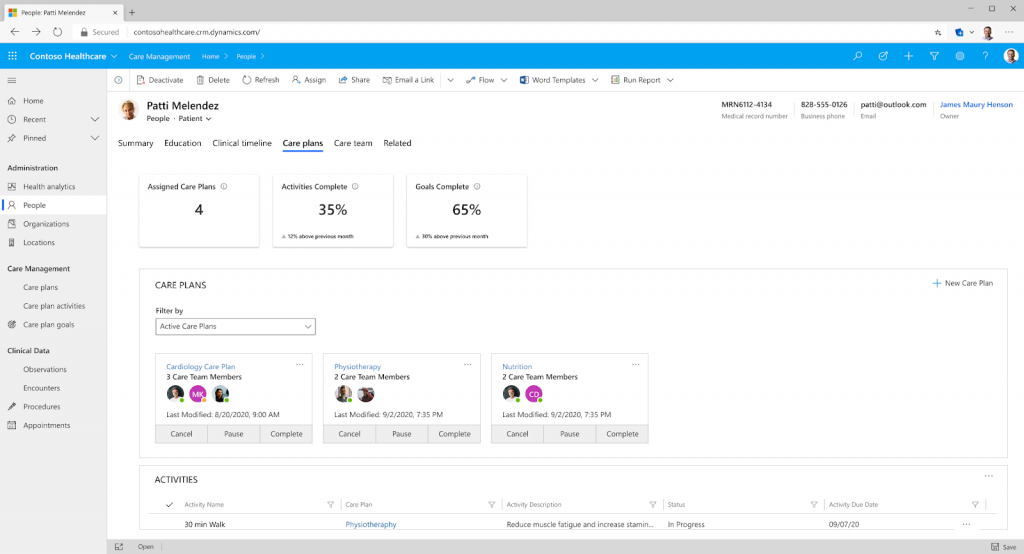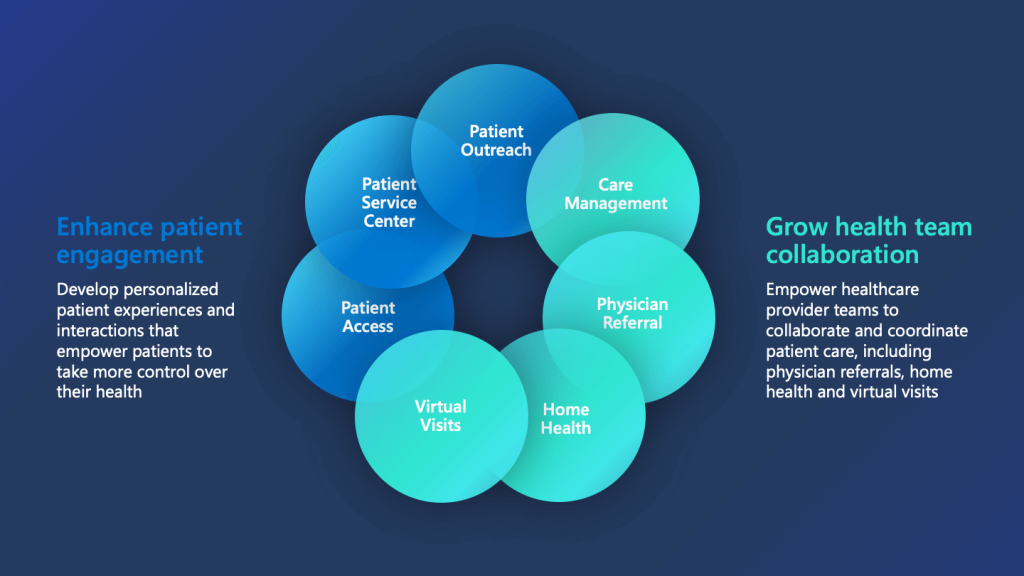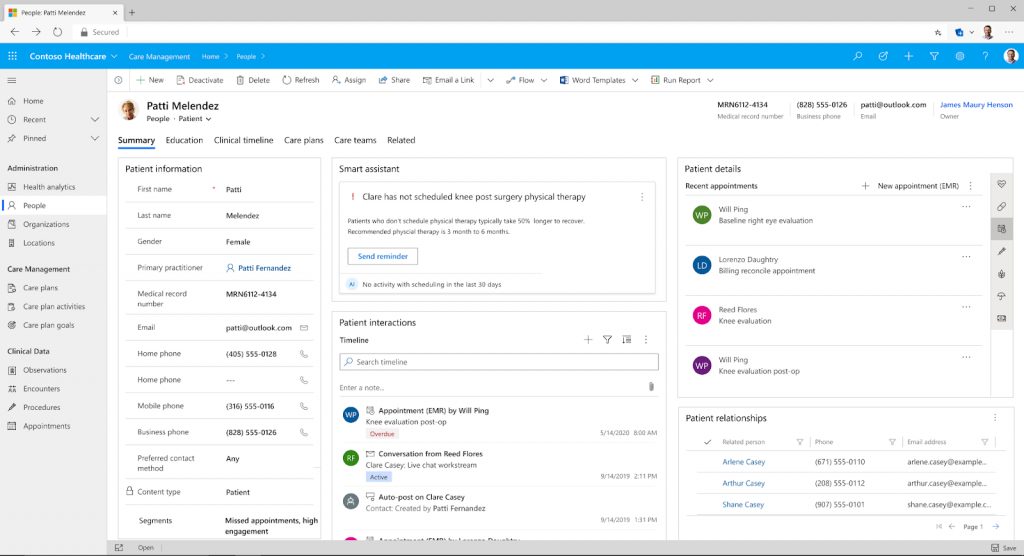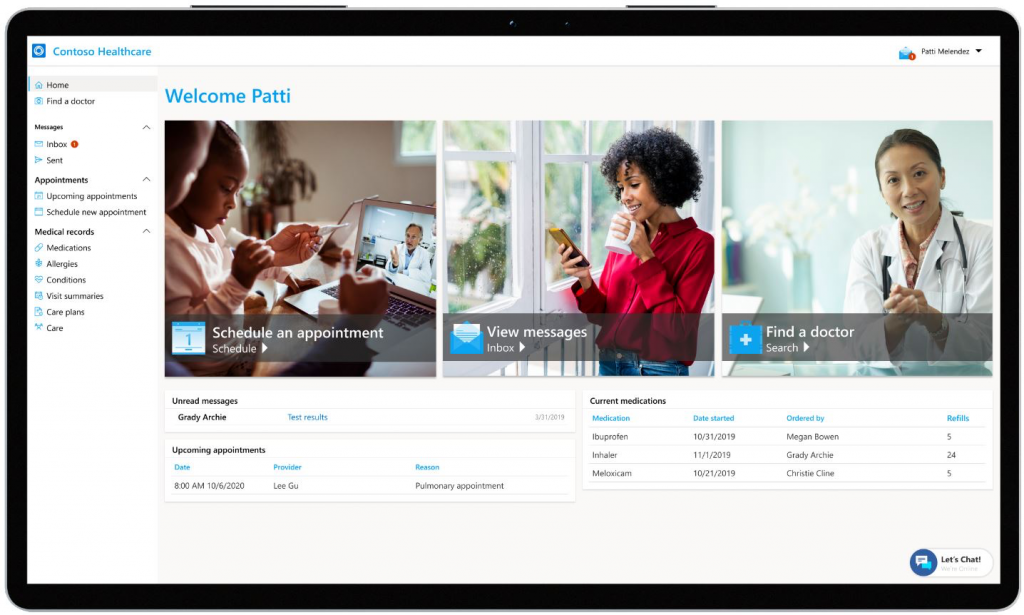- What is Microsoft Cloud for Healthcare and why should I consider it for my healthcare organization?
Microsoft Healthcare is your organization's golden ticket to a brighter, more efficient future. It's not just a solution; it's a transformative force. This platform seamlessly weaves technology and healthcare, offering innovative tools like seamless integration with electronic health records, advanced analytics, and telemedicine services. It empowers healthcare providers to make quicker, more informed decisions and to enhance patient outcomes.
What sets it apart? It prioritizes data security and compliance with regulations like HIPAA and GDPR. Your patient's data remains locked tight in this digital fortress.
Consider Microsoft Cloud for Healthcare if you're committed to providing top-notch patient care, staying ahead in the technological race, and safeguarding sensitive patient data. It's not just a choice; it's your gateway to a healthcare future that's efficient, innovative, and patient-centric. - How does Microsoft Cloud for Healthcare improve patient care?
Microsoft Cloud for Healthcare is the secret sauce that amplifies patient care. It turbocharges the healthcare ecosystem by offering seamless integration with electronic health records (EHRs) and providing advanced analytics tools. This means that healthcare professionals have instant access to comprehensive patient information and the power to derive actionable insights from vast data streams.
Telemedicine services, another ace up its sleeve, break down geographical barriers, enabling virtual consultations that make healthcare accessible to all. This alone transforms patient care by ensuring timely, convenient access to healthcare services.
But that's not all. Microsoft Cloud for Healthcare delivers data security and compliance with a cherry on top. It's HIPAA and GDPR-compliant, safeguarding patient data and privacy.
In a nutshell, it is like a GPS for healthcare providers, guiding them to better, more informed patient care, while keeping patient data securely locked away. It's the future of healthcare, right here, right now. - What security measures does Microsoft Cloud for Healthcare use to protect patient data?
Microsoft Health Cloud is your digital fortress for patient data. It deploys an arsenal of security measures like advanced encryption, access controls, and identity management. Think of it as an impenetrable vault, ensuring only authorized personnel can access sensitive information. It operates in harmony with healthcare regulations like HIPAA and GDPR, keeping patient data in a secure embrace. These robust defenses are akin to an unbreachable fortress, guaranteeing the utmost privacy and data protection for healthcare organizations and their patients. With Microsoft medical benefits, your data security is ironclad, and your patients can trust their information is in safe hands.
- Is Microsoft Cloud for Healthcare cost-effective for healthcare organizations?
Absolutely, Microsoft Health Cloud is not just a tech marvel; it's budget-savvy too. Streamlining administrative tasks, optimizing resource allocation, and enhancing decision-making, contribute to substantial cost savings in the long run. It's like a financial advisor for your healthcare operations, helping you do more with less. Plus, its scalability ensures that it grows with your organization, accommodating changing needs without breaking the bank. In a nutshell, it's a cost-effective choice that doesn't compromise on the quality of care, making it a win-win for healthcare organizations looking to maximize their financial efficiency while delivering top-notch services.
- Why is Microsoft Cloud for Healthcare a benefit for the patient?
Microsoft Healthcare is a patient's ally in the digital age. It ensures that healthcare providers have swift access to vital patient data, leading to quicker and more informed decisions, and ultimately improving patient care. With telemedicine services, it breaks down geographic barriers, offering patients convenient access to healthcare services from the comfort of their homes. Patient data is fortified within its secure ecosystem, preserving confidentiality. By enhancing efficiency, ensuring accessibility, and safeguarding data, Microsoft medical benefits place the patient at the center of care, prioritizing their experience and well-being. It's a digital catalyst for better, more patient-centric healthcare.
- Is Microsoft Cloud for Healthcare safe for storing medical data?
Yes, Microsoft Healthcare is a secure haven for medical data. It goes to great lengths to ensure data safety, employing cutting-edge encryption, access controls, and identity management. Compliance with healthcare regulations like HIPAA and GDPR is non-negotiable, safeguarding sensitive medical information. This robust security framework makes it an exceptionally safe choice for storing medical data, offering healthcare organizations and patients peace of mind. Microsoft Health Cloud is a fortress where data protection is paramount, ensuring that confidential medical information is well-guarded and accessible only to authorized personnel.
- AI SOLUTIONS
- Services
DevOps as a ServiceDevOps on autopilot
CTO as a ServiceStregthen your team
Software testingEnsure software quality
Discovery phasePlan your priduct from a to z
Cloud ServicesGeneral information about healthcare cloud services
Google Cloud ServicesEnsuring confidentiality when working with medical systems
AWS Cloud ServicesServices specially designed for the healthcare industry
Microsoft Cloud ServicesPlatform processing, analyzing and sharing medical data
- Industries
- About
- Blog
- Portfolio
